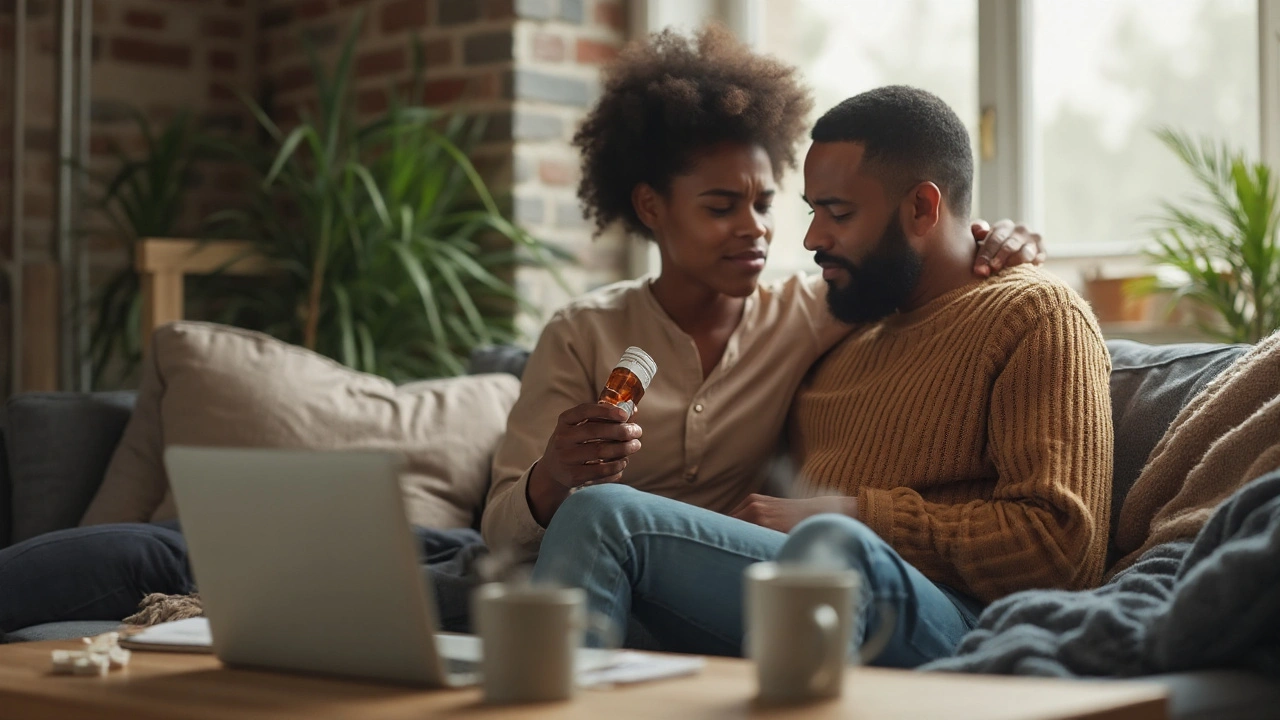Buspirone Libido: How This Anxiety Med Impacts Your Sex Drive
If you’ve started taking buspirone for anxiety, you might wonder why your libido feels off. You’re not alone—many people notice changes in their sexual desire when they begin this medication. In this guide we’ll break down what’s happening, whether it’s a short‑term thing, and simple steps to keep things balanced.
What Buspirone Does (and Why It Might Touch Your Libido)
Buspirone works by tweaking serotonin receptors in the brain. That helps calm nerves without the heavy sedation you get from some other anti‑anxiety drugs. But serotonin also plays a role in mood and sexual desire, so shifting its activity can sometimes lower or even raise libido.
Most users report mild side effects—headache, dizziness, or nausea—but sexual changes are less talked about. Some feel less interested in sex, while others notice a surprising boost. The key is that the reaction varies from person to person and often depends on dosage and how long you’ve been on the drug.
Tips to Manage Libido Changes While on Buspirone
Give it time. Your body may need a few weeks to settle into the new chemistry. If the dip in desire is mild, wait 2‑4 weeks before deciding anything’s wrong.
Check your dose. Lower doses sometimes cause fewer sexual side effects. Talk with your doctor about adjusting the amount if you notice a big swing in desire.
Stay active. Regular exercise boosts endorphins and can counteract any dip in libido caused by medication. Even short walks help keep blood flow steady and mood lifted.
Watch other meds. If you’re taking antidepressants, antihistamines, or blood pressure pills at the same time, they could be adding to the issue. A quick med review with your pharmacist can spot combos that might be hurting your sex drive.
Talk to a professional. When changes feel strong or linger past a month, bring it up with your prescriber. They might switch you to another anxiety medication that’s less likely to affect sexual function, like an SSRI‑free option.
Beyond medical tweaks, lifestyle habits can make a big difference. Prioritize sleep—7‑9 hours nightly keeps hormone levels steady. Reduce alcohol and nicotine, which are known libido killers. And keep communication open with your partner; honesty about how you feel reduces stress and often improves intimacy.
If you’re looking for natural ways to boost desire while staying on buspirone, consider adding zinc‑rich foods (like pumpkin seeds) or a short course of herbal adaptogens such as maca. These aren’t magic pills, but they can give a subtle lift when combined with the right diet and exercise.
Remember, every person reacts differently. Some people feel no change at all, while others notice a clear shift. Tracking your symptoms in a simple journal—date, dose, mood, sexual desire rating—helps you spot patterns and gives solid info for your doctor’s visit.
Bottom line: buspirone can affect libido, but it’s usually manageable. Give your body time, tweak dosage if needed, stay active, and keep the conversation going with your healthcare team. With a few practical steps, you can enjoy both calm nerves and a healthy sex life.
Buspirone and Libido: Effects on Sex Drive and How to Manage Changes
Worried buspirone might hurt your sex life? Learn how it affects desire, arousal, and orgasm, how common issues are, and what to do if your libido changes.






